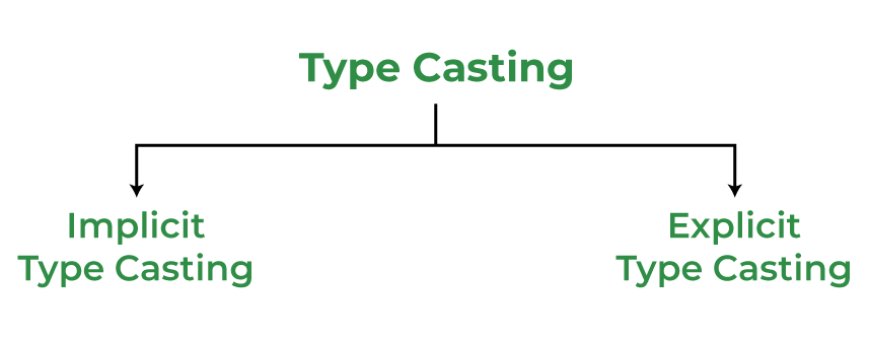Type Casting in C
Type casting in C allows you to control the conversion of data between different data types explicitly.

Type casting in C is the process of converting one data type into another. It allows you to change the interpretation or representation of data. This tutorial will explain the concept of type casting, its various forms, and provide examples to illustrate its use.
1. Introduction to Type Casting
In C, data types are fundamental to the language's behavior. Sometimes, you may need to convert one data type into another to perform a specific operation or assignment. Type casting provides a way to perform such conversions explicitly.
2. Implicit Type Conversion
C allows implicit type conversion, also known as type coercion or automatic type conversion, when certain conditions are met. This occurs when you assign a value of one data type to a variable of another data type without an explicit cast. For example:
int num1 = 10;
float num2 = num1; // Implicit conversion from int to float
3. Explicit Type Conversion (Type Casting)
When you want to control type conversions explicitly, you can use type casting. Type casting is done by specifying the target data type in parentheses before the value or variable to be converted. Here's the syntax:
(target_type) expression
For example:
float num1 = 10.5;
int num2 = (int)num1; // Explicit conversion from float to int
4. Casting Between Data Types
You can use type casting to convert between various data types, such as:
- Integer to float or double
- Float to integer
- Integer to character
- Character to integer, etc.
5. Examples of Type Casting
Example 1: Converting Float to Integer
#include <stdio.h>
int main() {
float num1 = 10.7;
int num2 = (int)num1; // Explicit conversion from float to int
printf("num1 (float): %f\n", num1);
printf("num2 (int): %d\n", num2);
return 0;
}
In this example, we explicitly convert a float to an integer, discarding the fractional part.
Example 2: Converting Character to Integer
#include <stdio.h>
int main() {
char ch = 'A';
int asciiValue = (int)ch; // Explicit conversion from char to int
printf("Character: %c\n", ch);
printf("ASCII Value: %d\n", asciiValue);
return 0;
}
In this example, we convert a character to its ASCII value using explicit type casting.
6. When to Use Type Casting
Use type casting when:
- You need to convert a value to a different data type explicitly.
- You want to avoid warnings or errors from the compiler when it encounters a data type mismatch.
- You need to manipulate data types to perform specific operations.
7. Common Pitfalls
- Data Loss: Be cautious when converting from a larger data type to a smaller one (e.g., double to int), as you may lose precision or data.
- Overflow and Underflow: Converting between data types with different ranges can lead to overflow or underflow issues.
- Sign Conversion: When converting between signed and unsigned types, pay attention to possible sign changes and data loss.

 HSingh
HSingh